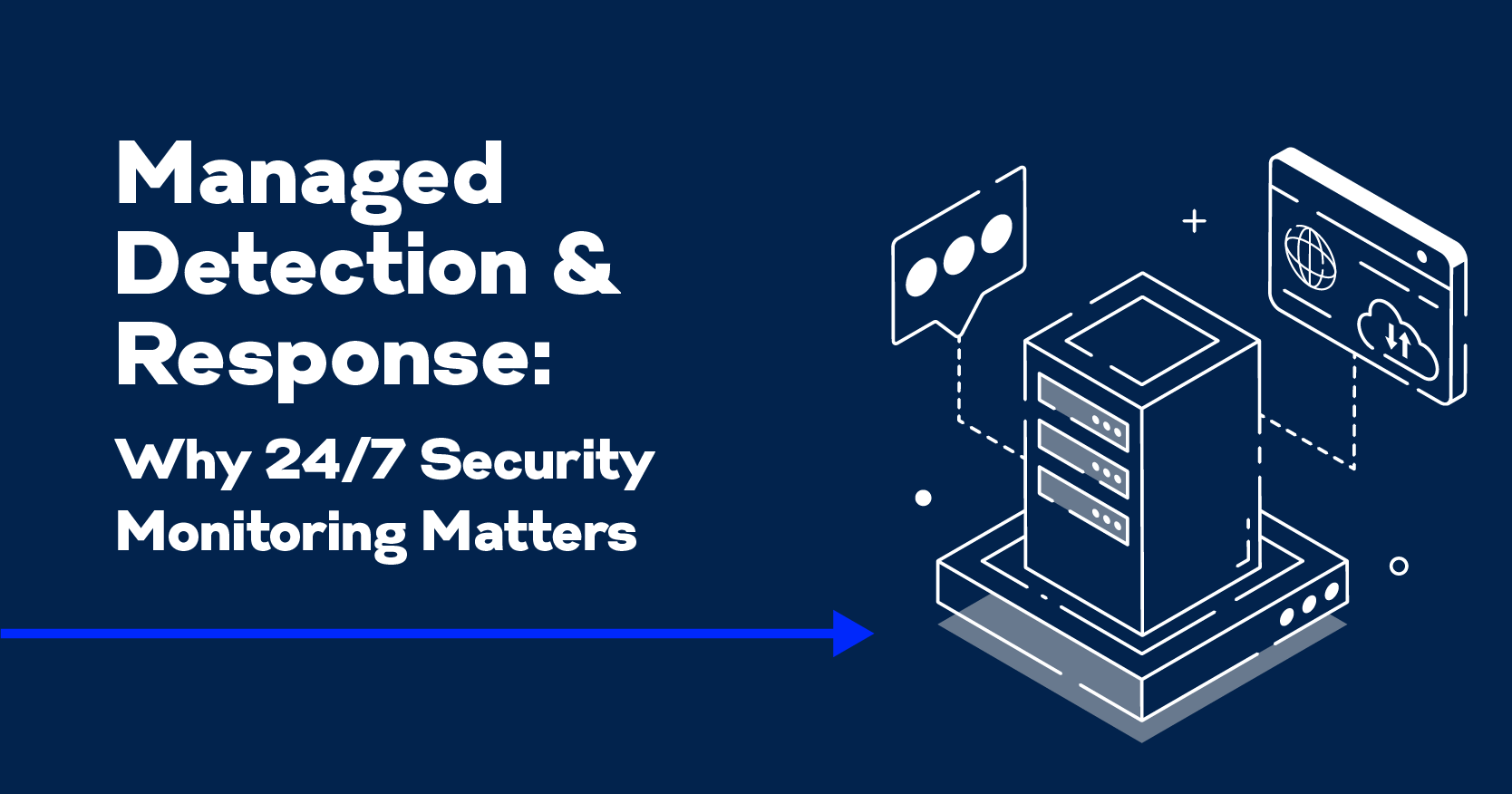Benefits of Managed IT Services

Benefits of Managed IT Services
New technologies typically promise to help businesses drive efficiencies and generate numerous other benefits. But for your IT staff, implementing a new technology platform is just one more thing on an ever-growing list.
IT staff are often charged with helping their organizations achieve high-profile strategic objectives. But it’s hard to focus on revenue-generating initiatives when a good portion of each day is spent patching software, fighting malware, and doing all the other day-to-day IT activities.
One solution to the quandary: managed IT services. Serving as an extension of your staff, a third-party company’s IT professionals can take on routine, often time-consuming IT tasks, ranging from patch management to backups. Their services, usually offered for a predictable monthly fee, offer numerous benefits, including those outlined below.
Free Up Internal Resources
Offloading routine IT tasks enables in-house IT professionals to focus on the business, whether developing products, improving operational efficiency, or any other strategic endeavors. These initiatives are essential to enabling organizations to undergo critical digital transformation and gain and maintain a competitive edge. They benefit from the insider knowledge in-house teams have.
Managed IT services providers can also take on cloud security, monitoring, and even optimizing cloud environments. This not only frees up internal IT staff time. It enables organizations to get more value out of their cloud resources.
Experience and Expertise
In-house IT staff are familiar with their IT environments and how things work. Working with their existing business model and platform is second nature.
The problem is that they usually don’t have the vast array of experiences to pull from that many managed IT service providers have. That can limit them in terms of applying fresh perspectives, innovative ideas, and new approaches to challenges. And with the wide range of responsibilities IT staff have, it’s hard for many companies to maintain anything other than IT generalists.
That can be a problem when it comes to cloud-based endeavors. It’s rare to find IT staff with the expertise and experience to pull off successful cloud migrations, architect optimal cloud environments or devise critical cloud security protocols.
Among the benefits of working with managed IT services providers is that you can tap into the wide range of IT experience and expertise these organizations and their staff possess – across companies, industries, business models, and platforms. They’ve seen what works, what doesn’t work, and why. Their experiences enable them to arrive at solutions quicker, avoid pitfalls they’ve seen, and try out new ideas with greater confidence in the outcomes.
Support
Your company’s employees and other end users expect the IT resources you provide them to perform optimally 24/7/365. If something goes wrong, they want it fixed immediately, regardless of whatever else your IT staff has going on. Providing that level of service requires maintaining an IT staff available any time, all the time, including holidays.
That’s not an option for many organizations. Even for those that can afford an around-the-clock staff, it’s not easy or cheap to maintain the necessary expertise to deal with the diverse range of IT problems that can arise.
Among the benefits of managed IT services is that expert support is just a phone call, text, or email away. Most managed IT services providers that offer 24/7 technical support also provide service level agreements (SLAs) that specify the time window in which they’ll address customer requests.
Monitoring
Cloud monitoring is essential for the performance and health of a cloud environment, its security, and your return on investment (ROI). Managed service providers – particularly those specializing in cloud environments – have access to the latest tools and other resources to offer leading-edge monitoring solutions. They understand the intricacies and complexities of cloud environments and can provide solutions that cover everything that needs to be covered.
They also can tailor the solution to your organization’s precise needs, configuring it to provide the data, reports, and responses you require the way you want them when you want them. In addition, these managed services providers can provide recommendations for fixing issues, strengthening defenses, and optimizing performance based on their extensive expertise, experience, and insights.
Incident Response
Incident response management is one of the most critical processes a business needs to get right. Downtime can be costly, so IT staffs need efficient ways to identify and prioritize incidents, respond to them, and resolve them.
By keeping incidence response internal, you don’t have to worry as much about the risks of granting an outside entity access to your company network and potentially proprietary information. You also avoid being locked into a contract with that vendor if it fails to meet the agreed performance and service. Nonetheless, there are advantages to enlisting a managed IT service provider for some aspects of your overall incident response plan.
You get access to their expertise, including their ability to identify potential flows in your current incident response plan and make recommendations for a more effective, efficient solution. Plus, an outside team will be motivated to respond quickly to your incidents and mitigate threats because it needs to meet a guaranteed success rate or the specifications of an SLA.
Among the most valuable solutions to seek out from a provider are managed detection and response (MDR) and managed extended detection and response (XDR). In the case of the MDR and XDR solutions offered by US Signal, they include the expertise of US Signal’s Security Operations Center (SOC) team, which monitors, collects, and correlates data from servers, network devices, cloud services, and more to identify security threats and their origination. The SOC team also receives and responds to all security alerts, freeing up your internal resources and enabling you to take advantage of the team’s in-depth security expertise.
Patching
Patching is a critical mechanism for combatting malware and other IT security issues. But for IT staff that is already stretched thin, it’s challenging to stay on top of the latest patch releases, much less apply them. In-house IT staff often must squeeze in patching whenever they can ─ leaving their systems vulnerable when patches aren’t implemented immediately.
Managed service providers make it their business to stay on top of security issues and the latest patch releases. They contact OEMs regarding the release of critical patches, communicate with the worldwide community of security experts, and implement patches as soon as they are available.
If they provide patch management as a service, they prioritize that service. They are also more likely to have access to and expertise in automated solutions for endpoint scanning, patch acquisition, and deployment for multiple vendors.
Security
Being up-to-date on the latest IT security threats is difficult for IT professionals balancing day-to-day IT responsibilities, strategic initiatives, and special projects. Building a dedicated in-house IT security team is an option. But given the competition for IT security professionals, it’s an expensive, time-consuming one that may not be sustainable.
Managed services providers specializing in IT security, including security specific to cloud operations, and maintaining highly experienced teams of experts. These organizations invest in leading-edge defensive tactics and tools as well as mitigation strategies.
The best among them take a multi-layered approach to IT security, employing various resources to defend against external and internal breaches across endpoints, at the edge, throughout the network, and anywhere and everywhere else.
Among the resources they can employ are security and vulnerability assessments to identify issues and fix them before they become problems. They can also take over the responsibility of monitoring your organization’s network and cloud infrastructure, maintaining the security of your endpoints, and incorporating practices like application vulnerability monitoring, firewall management, and configuration management.
Some also offer backups and disaster recovery planning, which can mitigate data loss and help keep your business running. In addition, they may have expertise in compliance with the security facets of various regulatory requirements and industry standards. As such, they can help integrate the necessary controls to help meet HIPAA/HITECH, PCI-DSS, and a variety of other compliance needs.
There’s More
If you’re interested in building a business case for employing managed IT services, the benefits noted are an excellent place to start. Contacting various managed services providers and enlisting their input can help as well. US Signal is one to consider. In addition to a wide range of managed services, we can integrate the services with other IT solutions we offer to help you meet a variety of business, and IT needs. To learn what we can do, contact us .



